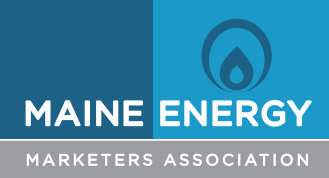Legislative Priorities
Maine Energy Marketers 2023 Legislative Priorities
Fuel Choice Legislation
As a follow up to MEMA’s Energy Choice Pledge and a solution to some Maine towns seeking to ban specific types of energy sources, such as fossil fuels, by removing a customer’s energy choice. MEMA will be countering the proposed bans by preserving the right for businesses and individuals to choose whatever source of energy they’d like to utilize, including oil, propane, natural gas, wood, or any type of renewables.
B20 Legislation
The intent of Public Law, Ch. 124 passed in the 126th Legislature was to disclose and provide documentation of the amount of biofuel in certain blended products at the time of sale. It allows a buyer of these blended products to rely on the information contained in this documentation and relieves the buyer of liability arising from this reliance.
On the surface the existing law may appear to cover blends up to B20.
- The current law does not include the usage of B20
- Since under existing law they include #2 heating oil in “all” references to diesel fuel, it would be impossible to separate the D7467 B20 specifications for diesel fuel and the D396 specifications for B20 heating oil.
The current statute needs clarification.
Propane Safety Legislation
History
Prior to 2011
Propane lines were not required to comply with Dig Safe.
The propane industry has historically been regulated in Maine by the Maine Fuel Board.
In 2011
Propane industry members joined a Dig Safe Work Group to voluntarily expand jurisdiction for propane systems to the PUC for those few JLP facilities that were subject to 49 CFR 192.
In 2012
The definition of “Underground Facility” in 23 MRSA 3360-A was amended to clarify that these JLP facilities would fall under Dig Safe.
In 2011/2012
The propane industry voluntarily took on the role of operator, but only for jurisdictional propane facilities.
In other states, many of these large systems are operated by the property owners and not by the propane suppliers.
In 2017
LD 405 attempted to make propane facilities with a cumulative tank capacity of over 2,000 gallons subject to Dig Safe. Prior to introducing the bill, the Dig Safe Working Group members met again with the PUC staff and opposed legislation proposed by PUC.
One of the reasons the propane industry opposed the bill, was because the Dig Safe system does not work correctly for propane systems. The majority of Dig Safe tickets that are sent to propane suppliers do not apply to their registered JLP systems, because Dig Safe does not require GPS coordinates when tickets are issued, and that Dig Safe is often not called.
In 2020
LD 1892 was introduced without the PUC notifying the propane industry of a proposed change, or meeting with the Dig Safe Working Group.
In 2023
The propane industry is proposing a safer more efficient solution to preventing leaks from underground lines bill.
The bill solves the problem of contractors and property owners who do not call Dig Safe prior to digging, (as was the case in the tragic incident), and our bill also provides a much safer solution by requiring a leak test to be conducted following digging within 10 feet of an unmarked underground line, in accordance with the National Fire Protection Association (NFPA) propane industry codebook NFPA 58.
Proposed legislation
A safer solution is to leak check all underground lines when digging occurs within 10 feet.
DigSafe Doesn’t Work For Propane
- Marking is not practical for propane lines.
- Lines belong to the property owner
- Lines may be installed by property owner or HVAC contractors and prior to metallic tape
- Lines may be added without supplier knowledge
- Propane suppliers frequently change
- The DigSafe system was not created for and does not work for short underground lines
- DigSafe registration and marking would increase energy costs for consumers
Problems with the current law
- It does not apply to all propane underground lines
- The DigSafe system does not work for small facilities
- Over 95% of the tickets sent to propane marketers are for locations that are not on the property where the lines are located
- Burden on small businesses
- Increases costs to customers
